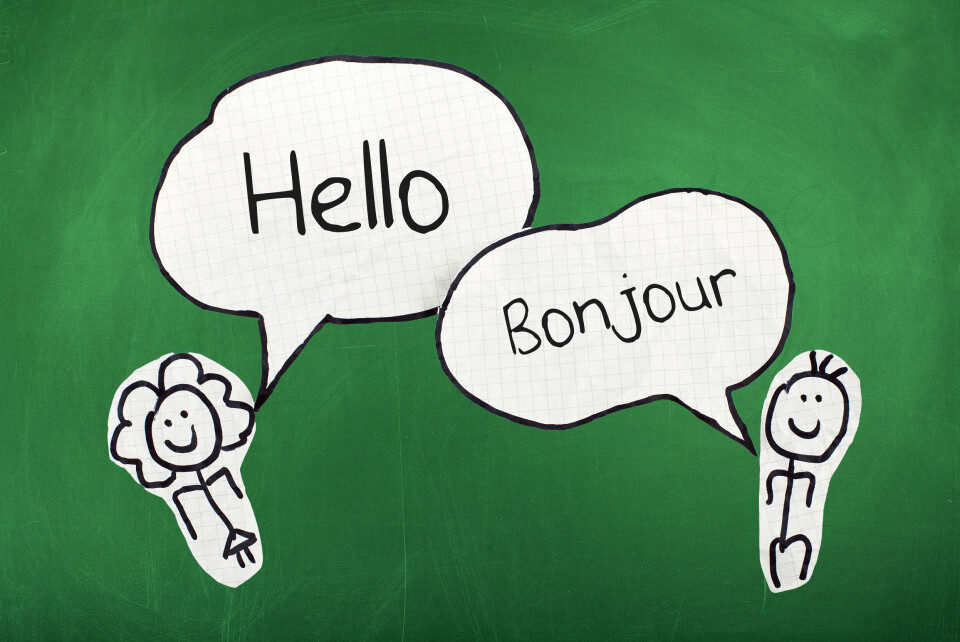-
More French podcasts to test your language skills
Podcasts are one of the best free tools for consistently developing your listening comprehension
-
Rugby vocabulary to know if watching the Six Nations in France
From un tampon to une cathédrale, understand the meaning of key French rugby terms
-
Learning French: what does faire grise mine mean and when should it be used?
A phrase to use when someone is down in the dumps
‘To master the French language, grasp how it differs from English’
English was heavily influenced by French after the Norman Conquest but do not be fooled says Nick Inman

French and English are quite similar in several respects.
They are both international languages, widely spoken.
They share a lot of vocabulary, because English was heavily influenced by French after the Norman Conquest.
Both have the same irritating characteristic: the written language is not a guide to pronunciation.
Read more: Buffing up your French pronunciation
You could say that, in each case, you need to learn two languages – one oral and one visual – without connecting them too precisely. You have to close your eyes and listen, then close your ears and read.
There the similarities end. To master French, it is vital to grasp how it differs from English.
France has the Académie Française to uphold rules
French, unlike English, has precise rules. There are as many exceptions as there are rules, but even the exceptions are governed by their own rules.
English evolves rapidly, according to how people use or misuse it. French changes as little as possible, and then only in obedience to the dictates of experts.
While the letters page of The Times is the place to discuss split infinitives and non-existent subjunctives in English, in France such matters are settled by the Académie Française.
Read more: France publishes list of French words to use for shopping anglicisms
It is no good struggling against this. You learn the rules as best you can, however absurd they sometimes seem.
French has ‘vous’, English dispensed with ‘thou’
Another difference is that there is a clear distinction between formal and informal registers of French. English tends to fudge this issue.
Look at any letter written by a French bureaucrat and you will see what I mean. It will be impersonal and verbose.
Plain English might have transformed official communications in English, but Plain French has yet to make any headway at all.
Even emails in French are stiff and cold: if you are writing to someone you don’t know, keep all lightness and friendliness out of it.
In conversation, you notice the formal/informal split in the use of the polite vous and the more intimate tu.
English, shamefully, shed its ‘thou’ a few centuries ago and now just has the universal ‘you’.
Read more: Your selection of ‘funny, bizarre’ English words used in French
‘Buses red’ and ‘the language French’
Curiously, the unrelenting emphasis on formality encourages an equal, opposite reaction against it.
Informal French makes great use of slang words, and long words are routinely cropped to their first syllable, making it difficult for a foreigner to follow a conversation.
No one says la Faculté (university faculty or department), they all say la Fac.
Next, as you will have noticed, French is back to front. (Or is it English that has it the wrong way around?)
It is easy to forget this if you let your concentration wander, but you have to get used to thinking of ‘buses red’ and ‘the language French’.
When my friends want to rib me, they quote from the Astérix comic books, which deliberately play on this reversal when an English woman talks of la bouillante eau (boiling water) for making tea, instead of the correct French, eau bouillante.
Similarly, it is always going to be ‘the house of Peter’ since you don’t have a nifty possessive apostrophe to rely on.
Then there is gender
Every noun, as you will have realised, dresses one way or the other – to the feminine or masculine.
English dabbles in gender only slightly, and throws in a neutral to confuse French speakers, but in French gender plays an important role.
Every loose end must tie up: if your noun is feminine plural, your adjective must agree.
Some adjectives change radically: vieux (old, masculine) looks nothing like vieille (old, feminine), and they are pronounced differently.
Yet they mean exactly the same thing.
Related articles
Really speak like a local… use these French filler words
























